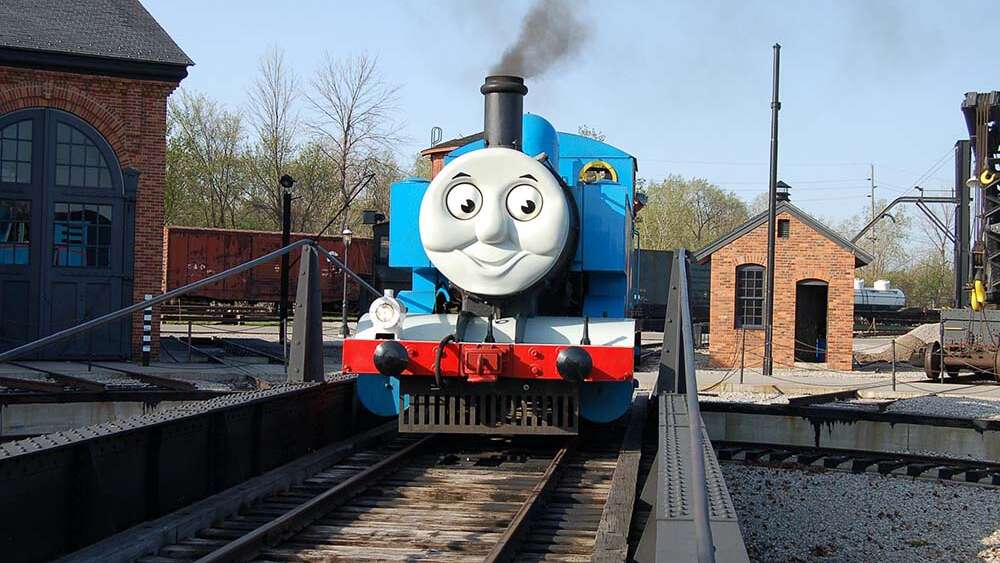With the flux of passing fads, it is apt to remember the rich legacy of a modest vicar who unwittingly gave the world one of its most enduring cultural icons. In the protean realm of children’s entertainment where crazes come and go like morning mist, there is one character that has seemingly stood timeless like the rock of Gibraltar.
From the austere post-war world of our grandparents to the present digital age, Thomas the Tank Engine and his band of anthropomorphic engine friends continue to delight the living rooms of more than one billion households from Hampstead Heath to Hiroshima. Its ubiquitous appeal has seen that recognisably cheeky face of Thomas grace all manner of merchandise from potties and lunchboxes to yoghurt tubs and iPad apps. Yet in our age of HomePod minis, Spotify and Snapchat, what is it about these stories of antiquated steam engines that continue to enthral audiences?
While Thomas and Friends is instantly recognisable to many, few realise it was the creation of a Church of England vicar from the South of England whose three abiding loves were God, children and railways.
In addition to his life-long mission of serving Christ and his flock in parish ministry, Reverend Wilbert Awdry (1911-1997) was an acclaimed author who sought to imbibe children with his own love of steam trains and amuse them with light-hearted yet instructive stories about friendship, responsibility, resilience and loyalty.
Affectionately dubbed the ‘Puff Puff Pastor’, Wilbert Vere Awdry was born near Romsey, Hampshire, on 15 June 1911. The son of a vicar, young Wilbert was educated in Sussex and Wiltshire. After graduating from St Peter’s College Oxford with a BA in 1932, Awdry entered the Evangelical Wycliffe Hall to train for the Church of England ministry.
Between graduation and ordination, Awdry taught in Jerusalem which brought the land of the Bible vividly alive for him. As the future vicar later sat down to pen his railway stories in the 1940s, the moral themes of the Bible would sure enough spring to life on the island of Sodor.
Following his sojourn in Israel, he returned to Britain where he was ordained at Winchester Cathedral in 1936.
Whilst serving as a curate near Birmingham, Awdry found time to re-immerse himself in his childhood fantasy of steam to compose his first series of railway stories. Despite several rejections from potential publishers, the doughty clergyman persevered and his book was eventually accepted. Impressed by Awdry’s initial submission, the publisher was quick to commission subsequent volumes, and with each story complemented by vivid hand-drawn illustrations, they enjoyed a runaway success in Britain and abroad.
After selling more than 50 million copies in published form, the Thomas and Friends series came to enjoy a new lease of life with its launch on television from the early 1980s. Its reach across the globe was in no small measure due to the arrival of former Beatles’ Drummer, Ringo Starr, as storyteller-in-chief with his endearing Liverpudlian accent.
As the setting for his famous railway stories, Awdry had created the fictional island of Sodor, a microcosm of rural England in the 1940s. To be sure, life on Sodor was not all rosy. Amid the charming villages, bubbling brooks and handsome viaducts of this green and pleasant English idyll, the engines often exhibited the familiar human traits of pride, envy and contempt for ‘outsiders’ such as Bertie the Bus and Terrance the Tractor.
Much like the world of the Bible itself, human imperfection never lay far beneath the surface.
The grace of the gospel was never lost on Awdry and his railway tales.
Yet despite such brokenness, Awdry envisioned a universe that remained fashioned by a good and loving creator. While the ‘Fat Controller’ was often a figure of fun, the portly gentleman of Sodor represented a firm yet kindly father-figure that had the power to reward and punish his engines. In the world of Sodor, there was always redemption and forgiveness. Offending engines were disciplined for wrongdoing but never scrapped. With the Bible replete with stories of God always giving his people another chance – from Yahweh’s forgiveness of King David to Jesus’ restoration of the Apostle Peter – the grace of the gospel was never lost on Awdry and his railway tales.
Like Phil Vischer with his VeggieTales series, or indeed C.S. Lewis with his canon of Narnia classics, Awdry proved eminently gifted at communicating Christian moral themes through imaginative stories which could captivate children of all backgrounds. With their narrative of good triumphing over evil, together with their appeal to the simple virtues of kindness, loyalty, truthfulness and justice, Awdry’s stories speak powerfully to the yearning of the human heart to seek the things of God.
Aside from the obvious magic of ‘steam’, the Christian inspiration behind Awdry’s railway fables is perhaps the silent reason for their perennial popularity.
As children and adults alike continue to draw valuable lessons from the exploits of Thomas and his friends, it is timely to appreciate that the character of these stories remain indebted to the character of their creator, who in turn, reflected the character of his creator.
In 1997, the Bishop of Gloucester said of the ‘Thomas the Tank Engine Man’: ‘Wilbert passes into immortality as one of God’s really useful priests and servants. He was not overcome by the glamour of being a famous author or deflected from his dedication to the priesthood. He never wavered in his basic biblical and simple faith.’
When Awdry was asked by his biographer, Brian Sibley, as to how he hoped to be remembered, the old vicar replied that ‘he helped people to see God in the ordinary things of life, and he made children laugh’.
David Furse-Roberts is the author of the Making of a Tory Evangelical and the forthcoming book, God and Menzies.
Email This Story
Why not send this to a friend?





